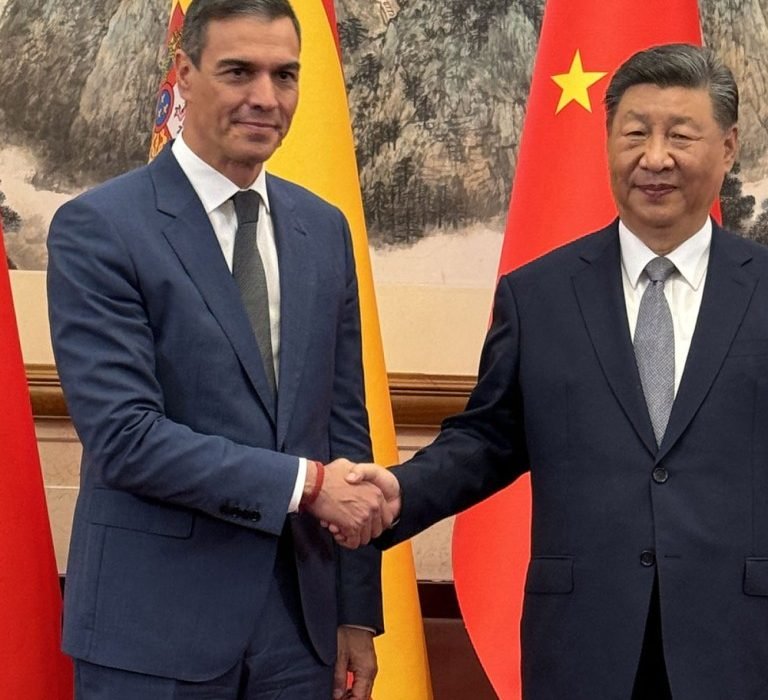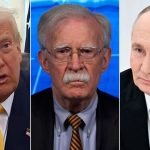
The Evolving Dynamics of Spain-China Relations: A Trade Perspective
Spain Shifts on China Tariffs: Trade, EVs, and EU Tensions
This blog post explores the recent shifts in Spain’s trade policies towards China, particularly concerning electric vehicle tariffs and the implications for the automotive industry, under the leadership of Pedro Sánchez.
In the fast-paced world of international trade, shifts can happen at lightning speed. Just a year ago, Spain’s stance on tariffs against Chinese electric vehicles seemed set in stone. Fast forward to today, and the landscape has turned upside down. What led to this drastic change? Let’s unpack the layers behind Pedro Sánchez’s recent political maneuvers regarding China, and what it means for Spain’s economy and the larger geopolitical landscape.
Understanding Spain’s Initial Stand on Chinese Tariffs
Spain’s approach to trade has always been shaped by its historical context. Over the years, the country has navigated various challenges and opportunities in the global market. Recently, however, the focus has shifted towards a more specific issue: tariffs on Chinese electric vehicles. This topic has sparked significant debate within the European Union (EU) and among member states, including Spain.
Historical Context of Spain’s Trade Policies
Spain has a long history of trade policies that reflect its economic priorities. Traditionally, the country has aimed to protect its local industries while also engaging in international trade. This balancing act is not easy. It often raises questions about how far a government should go to protect its own businesses without stifling free trade. In this context, Spain’s initial support for EU tariffs on Chinese electric vehicles made sense. The government believed that these tariffs were necessary to shield local manufacturers from unfair competition.
Initial Support for EU Tariffs on Chinese Electric Vehicles
When the EU proposed tariffs that could reach up to 100% on Chinese electric vehicles, Spain was among the supporters. The rationale was clear: protect local jobs and industries from what many perceived as dumping practices by Chinese manufacturers. Dumping occurs when a country exports goods at a price lower than their market value, which can undermine local businesses. Spain’s government, led by Prime Minister Pedro Sánchez, initially viewed these tariffs as a way to level the playing field.
- Support for tariffs: Spain voted in favor of implementing these tariffs at the EU level.
- Concerns about dumping: The government cited fears that Chinese manufacturers were engaging in unfair practices.
Concerns Regarding Dumping Practices
Dumping practices are a significant concern for many countries, including Spain. The EU justified its tariffs by arguing that they were necessary to protect free trade. However, the question remains: how do you protect local industries without creating trade barriers? This dilemma is at the heart of Spain’s shifting stance on tariffs. As Sánchez’s government navigates these waters, the political implications of aligning with EU regulations become increasingly complex.
Spain’s trade balance with China is another factor to consider. The country exports a considerable amount of pork to China, with 2023 figures indicating an export value of approximately $1.5 billion. This relationship complicates Spain’s position on tariffs. If Spain were to impose strict tariffs on Chinese electric vehicles, could it risk retaliatory measures from China? The stakes are high, and the government must tread carefully.
Shifting Political Landscape
Recently, Sánchez has urged the EU to reassess these tariffs. This shift in stance has raised eyebrows. As one commentator noted,
“The government’s shift in stance raises questions about the fine line between protecting local industries and engaging in free trade.”
It appears that Sánchez is now positioning Spain as a potential ally for China within the EU. This pivot highlights the increasing complexity of trade relationships in a globalized economy.
China’s strategic investments in Spain, particularly in clean energy and electric vehicle manufacturing, may also explain this change. With recent investments totaling €1 billion, it seems that economic ties are influencing political decisions. Could these funds be shaping Spain’s approach to tariffs? The relationship between Spain and China is evolving, and the implications are profound.
As Spain navigates these turbulent waters, the government faces a delicate balance. They must protect local industries while also fostering beneficial international relations. The complexity of these dynamics cannot be overstated. Ultimately, Spain’s approach to Chinese tariffs will continue to evolve, reflecting broader trends in global trade and economics.
The Shift: Pedro Sánchez’s New Approach to China
Recent Trips by Sánchez to China
In recent years, Pedro Sánchez has made several official trips to China. These visits are not just ceremonial; they carry significant weight in the context of international relations. Over the past two years, Sánchez has visited China multiple times, strengthening ties with the Chinese leadership. Each trip has opened doors for dialogue and cooperation.
But why is this important? Well, these visits symbolize a shift in Spain’s foreign policy. They indicate a move towards collaboration rather than confrontation. Sánchez’s approach contrasts sharply with the previous stance of the European Union, which had been more cautious and critical of China.
Economic Motivations Behind the Shift
One of the driving forces behind Sánchez’s new approach is economic. Spain is looking to boost its economy, and China represents a vast market with immense potential. The Chinese economy is one of the largest in the world, and engaging with it can lead to increased investments.
- In 2023, Spain exported approximately $1.5 billion worth of pork to China.
- Recent Chinese investments in Spain have reached €1 billion, particularly in clean energy and electric vehicle manufacturing.
These figures highlight the importance of maintaining a good relationship with China. Sánchez’s administration seems to recognize that fostering these ties can lead to substantial economic benefits for Spain.
Impact on EU’s Collective Trade Stance
Sánchez’s shift also has implications for the European Union as a whole. Traditionally, the EU has taken a tough stance on trade with China, particularly concerning tariffs on Chinese electric vehicles. The EU had considered imposing tariffs as high as 100% on these vehicles, a position that Spain initially supported.
However, Sánchez is now advocating for a reassessment of these tariffs. He believes that avoiding a trade war is crucial for fostering connections between Europe and China. This change in stance raises questions about the unity of the EU’s trade policy. Can one member state, like Spain, influence the collective approach?
Beijing’s Influence in International Markets
Beijing’s influence in international markets is undeniable. As China continues to expand its economic reach, countries like Spain must navigate this complex landscape carefully. Sánchez’s relationship with Chinese leadership appears to be a strategic move to secure favorable terms for Spain in the global market.
Could this be a case of building bridges over barriers? As Sánchez himself noted, “Building bridges over barriers might just be the new mantra for Sánchez’s administration.” This philosophy reflects a desire to create a more collaborative environment, not just with China but within the EU as well.
Potential for Increased Investments from China
The potential for increased investments from China is a significant factor in Sánchez’s new approach. With the establishment of a business advisory council aimed at enhancing Sino-Spanish relations, the groundwork is being laid for future economic partnerships.
As Spain seeks to attract more Chinese investments, the implications for domestic industries could be profound. Increased investment could lead to job creation and technological advancements, benefiting the Spanish economy overall.
In conclusion, Sánchez’s shift towards China marks a pivotal moment in Spain’s foreign policy. By prioritizing collaboration over conflict, he aims to position Spain favorably in the global economic landscape. The coming years will reveal how this strategy unfolds and what it means for Spain’s role within the EU.
The Implications for Spain’s Automobile Industry
Spain’s Role in the Electric Vehicle Market
Spain is emerging as a significant player in the electric vehicle (EV) market. The country is not just a manufacturing hub; it is also becoming a center for innovation in EV technology. In recent years, there has been a notable increase in electric vehicle sales. For instance, the percentage of electric vehicle sales growth in Spain has been impressive, reflecting a broader trend across Europe.
As European nations push for greener alternatives, Spain is positioned to benefit. The government has set ambitious targets for EV adoption, aiming to reduce carbon emissions significantly. This is not just a local initiative; it aligns with the European Union’s broader goals. But how will Spain maintain its competitive edge amidst growing competition?
Potential Risks and Benefits of Closer Ties with China
Closer ties with China present both opportunities and challenges for Spain. On one hand, increased investments from Chinese firms could bolster Spain’s EV sector. This could lead to job creation and technological advancements. However, there are risks involved. The influx of Chinese competition may pressure local manufacturers. Will they be able to compete effectively?
- Investment Prospects: Chinese companies are showing interest in investing in Spain’s EV infrastructure. This could lead to enhanced production capabilities.
- Potential Backlash: There is concern among EU partners regarding Spain’s growing relationship with China. Could this lead to tensions within the EU?
Industry experts are cautiously optimistic. They recognize the potential benefits of Chinese investments but are wary of the competitive pressure this may impose on local companies. As one expert noted,
“The future of Spain’s automotive sector may very well hinge on how we navigate our relationship with China.”
Predictions for the Future of the Automotive Industry
The future of Spain’s automotive industry is uncertain but filled with potential. Analysts predict that if Spain can strike a balance between fostering international relations and protecting local interests, it could thrive. The key players in the Spanish automobile market are adapting to these changes. They are investing in new technologies and exploring partnerships.
However, the landscape is complex. The market share of Chinese automakers in European markets is growing. This could lead to increased competition for Spanish manufacturers. Will they be able to innovate quickly enough to keep up?
As Spain navigates these waters, it must consider the implications of its decisions. The relationship with China could reshape the automotive sector. The stakes are high, and the path forward requires careful consideration.
In conclusion, Spain stands at a crossroads. The decisions made today will impact the automotive industry for years to come. The balance between embracing foreign investments and protecting local manufacturers is delicate. Spain must tread carefully to ensure a prosperous future in the electric vehicle market.
Navigating a New Trade Frontier
As Spain stands at a crossroads in its trade relations, the strategic choices made by Prime Minister Pedro Sánchez’s government are under intense scrutiny. The shift towards China is particularly noteworthy. It raises questions about the future direction of Spain’s economic policies. Will this pivot strengthen Spain’s position in the global market, or will it lead to unforeseen challenges?
Reflections on Spain’s Strategic Trade Choices
Spain’s recent decisions reflect a balancing act between local industry needs and global opportunities. The government’s move to reassess tariffs on Chinese electric vehicles is a prime example. Initially, Spain supported the EU’s stance on imposing high tariffs. Now, Sánchez is advocating for a more cooperative approach. This change indicates a recognition of the importance of maintaining strong diplomatic relations. After all, trade is not just about economics; it’s about building connections.
However, this shift also brings challenges. The need to adhere to EU mandates while engaging with China complicates matters. Spain must navigate these waters carefully. The stakes are high, especially with the projected economic growth in electric vehicle manufacturing. This sector could become a cornerstone of Spain’s economy. But how will public opinion react to these changes? Recent surveys show a shift in sentiment regarding trade with China, influenced by current policies. This evolving perspective could impact future negotiations.
Looking Ahead: Potential Economic Forecasts
Looking ahead, the economic forecasts for Spain’s trade landscape are cautiously optimistic. The electric vehicle sector is expected to grow significantly. This growth could provide a much-needed boost to the economy. However, it is essential to consider the broader implications of Spain’s relationship with China. As Sánchez navigates this new terrain, stakeholders must monitor how these evolving relationships play out. The integrity of the European Union’s collective trade agenda is at stake.
Moreover, the potential for retaliatory tariffs from China looms large. Spain exports a considerable amount of pork to China, valued at approximately $1.5 billion in 2023. Any disruption in this trade could have significant consequences. The agricultural sector holds substantial political weight in Spain. Thus, the government must tread carefully to avoid jeopardizing these vital exports.
Final Thoughts on International Cooperation and Competition
In an era of global interdependence, Spain’s journey will serve as a case study for future trade negotiations. The delicate balance between fostering beneficial international relations and safeguarding national interests is more crucial than ever. As Sánchez steers Spain into this uncertain territory, the importance of diplomatic relations cannot be overstated. The challenge lies in ensuring that Spain’s strategic choices align with both local industry needs and the broader goals of the European Union.
Ultimately, the road ahead is fraught with complexities. The interplay of international cooperation and competition will shape Spain’s economic future. Stakeholders must remain vigilant and engaged in these discussions. The evolving trade landscape presents both opportunities and challenges. How Spain navigates this new trade frontier will undoubtedly influence its position on the global stage.
In conclusion, as Spain embraces this new chapter, the focus should remain on fostering relationships that benefit all parties involved. The journey may be challenging, but the potential rewards are significant. The world is watching, and Spain’s actions will resonate far beyond its borders.
TL;DR: Spain’s abrupt policy shift on electric vehicle tariffs reflects broader geopolitical currents and a quest for economic stability, igniting questions about influence and national priorities in international trade.
PoliticalEconomy, ElectricVehicleTariffs, EUTradePolicies, SpainChinaRelations, InvestmentOpportunities, PedroSánchez, InternationalTradeDynamics, ChinaInfluence, AutomobileIndustry
#PedroSánchez, #ChinaInfluence, #InternationalTradeDynamics, #EUTradePolicies, #SpainChinaRelations, #AutomobileIndustry, #InvestmentOpportunities, #ElectricVehicleTariffs, #PoliticalEconomy,##SpainChinaRelations, #EVTariffs, #ElectricVehicles, #EUTradePolicy, #Geopolitics, #SanchezChina, #TradeWar, #AutoIndustry, #ForeignInvestment, #GlobalEconomy

